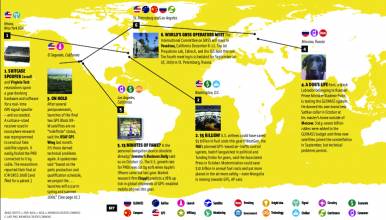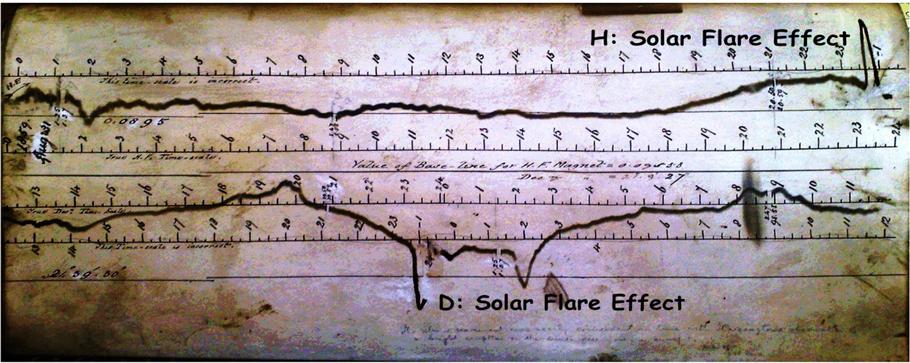 One of 12 magnetograms recorded at Greenwich Observatory during the Great Geomagnetic Storm of 1859
One of 12 magnetograms recorded at Greenwich Observatory during the Great Geomagnetic Storm of 1859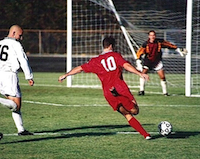 1996 soccer game in the Midwest, (Rick Dikeman image)
1996 soccer game in the Midwest, (Rick Dikeman image)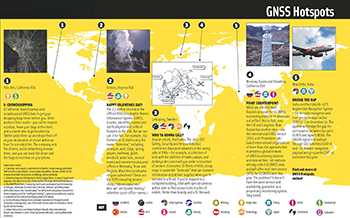
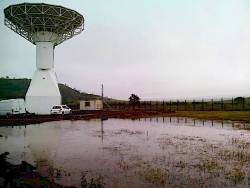 Nouméa ground station after the flood
Nouméa ground station after the flood A pencil and a coffee cup show the size of NASA’s teeny tiny PhoneSat
A pencil and a coffee cup show the size of NASA’s teeny tiny PhoneSat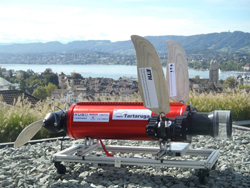 Bonus Hotspot: Naro Tartaruga AUV
Bonus Hotspot: Naro Tartaruga AUV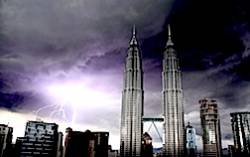
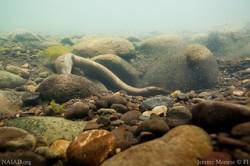 Pacific lamprey spawning (photo by Jeremy Monroe, Fresh Waters Illustrated)
Pacific lamprey spawning (photo by Jeremy Monroe, Fresh Waters Illustrated) “Return of the Bucentaurn to the Molo on Ascension Day”, by (Giovanni Antonio Canal) Canaletto
“Return of the Bucentaurn to the Molo on Ascension Day”, by (Giovanni Antonio Canal) Canaletto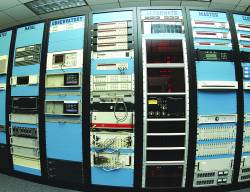 The U.S. Naval Observatory Alternate Master Clock at 2nd Space Operations Squadron, Schriever AFB in Colorado. This photo was taken in January, 2006 during the addition of a leap second. The USNO master clocks control GPS timing. They are accurate to within one second every 20 million years (Satellites are so picky! Humans, on the other hand, just want to know if we’re too late for lunch) USAF photo by A1C Jason Ridder.
The U.S. Naval Observatory Alternate Master Clock at 2nd Space Operations Squadron, Schriever AFB in Colorado. This photo was taken in January, 2006 during the addition of a leap second. The USNO master clocks control GPS timing. They are accurate to within one second every 20 million years (Satellites are so picky! Humans, on the other hand, just want to know if we’re too late for lunch) USAF photo by A1C Jason Ridder. 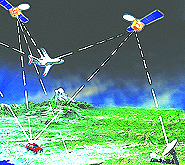 Detail of Compass/ BeiDou2 system diagram
Detail of Compass/ BeiDou2 system diagram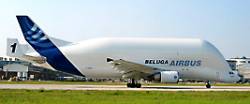 Hotspot 6: Beluga A300 600ST
Hotspot 6: Beluga A300 600ST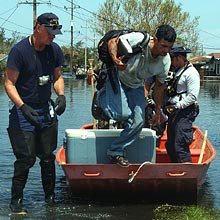

1. $1.2 BILLION FOR GPS
Washington, D.C.
√ President Bush’s FY09 budget allocates nearly $1.2 billion dollars for GPS operations, says the Space and Missile Systems Center’s GPS Wing. If approved, that means the GPS III satellite program goes ahead with a first launch in FY14. That delayed target date looks like a result of last year’s Congressional budget cuts.
1. $1.2 BILLION FOR GPS
Washington, D.C.
√ President Bush’s FY09 budget allocates nearly $1.2 billion dollars for GPS operations, says the Space and Missile Systems Center’s GPS Wing. If approved, that means the GPS III satellite program goes ahead with a first launch in FY14. That delayed target date looks like a result of last year’s Congressional budget cuts.
2. OFF THE MAP
United Kingdom
√ Satellite navigation is guiding thousands of British truckers off the main roads and through England’s villages, according to UK media. GPS doesn’t warn them about narrow streets — and big semis are getting wedged in the lanes. Tiny Barrow Gurney, on the route to Bristol airport, has even asked to be taken off the map databases.
3. CO2 EARLY WARNING
Paris, France
√ The Carbon Hero — now in beta testing — uses GPS to calculate your effect on global warming. The key ring sensor’s algorithm uses speed and position to identify your travel mode, measure your distance, and calculate your CO2 release — then it alerts you on the mobile. The British inventors won a 2007 European Space Agency technology transfer prize for this one. www.carbonhero.com.
4. WHERE THE ELEPHANTS ARE
Congo Basin
√ The Congo Basin habitat of the shy forest elephant is disappearing fast and poachers aren’t helping — but the animals are extremely hard to monitor. Now, pygmies and a Wildlife Conservation Society researcher are using GPS to follow 36 individual tagged elephants and watch them over time. The tracking project may help locate key conservation areas for the great beasts.
5. GLONASS INTEROPERABILITY
Moscow
√ By the time we go to press, Russia may well have decided to add code division multiple access (CDMA) signals to its frequency division multiple access (FDMA) system beginning with the GLONASS-K satellites that will launch in 2010. The new satellites will have higher signal power and more interoperability with other systems. (See related news item in this issue.)
6. COMPASS STEPS SIDEWAYS?
Beijing, China
√ China may be playing up regional goals for Compass/Beidou as the nation sorts out its global plans. A spokesman for the National Remote Sensing Center of China (NRSCC) said in last month’s Munich SatNav Summit, “We want to take care of Beidou 1 users,” Prioritizing regional capability may be due in part to Beidou’s security and traffic tasks during this summer’s Beijing Olympics. (See related 360 Degrees article in this issue.)

